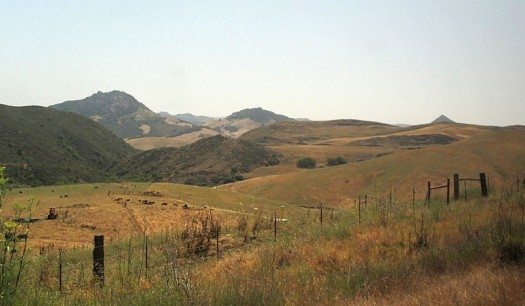Environment
Big Oil Has Big Plans for Our Environment

Big Oil says we ought to be supporting fracking because it causes less air pollution than other forms of energy, such as coal or even conventional oil drilling. As is frequently the case in these fights over facts, the oil companies have it about half right – maybe less.
Fracking technology pumps a mix of water, chemicals and sand a mile or so into the earth’s crust to release natural gas captured between layers of rock that the usual methods of drilling couldn’t touch. It’s birthed a modern day gold rush as the petroleum companies hurry to be the first to drill the Barnett Shale in Texas or the Marcellus Shale that lies beneath parts of Pennsylvania, New York, Ohio, Virginia, West Virginia, Kentucky and Maryland. Closer to home, there is the Monterey Shale formation in the old oil fields around Taft, west of Bakersfield.
Push below the surface of the big oil theme and we learn that while burning natural gas for fuel produces only about half the carbon emissions as coal, it also produces 70 per cent as much as burning oil itself, and accounts for 29 per cent of all energy-related carbons released into the air by the U.S. in the first quarter of last year. It also releases tons of methane gas, a greenhouse pollutant about 30 times more potent than carbon dioxide. And that’s just what it does to the air.
Look at fracking’s impact on water. One well requires 400 to 800 gallons of water per day, which can mean up to 200 tanker truck loads of water, quickly adding up to more than a million gallons of water per well. Water may be in abundance in some places, but not in the lower San Joaquin Valley. Like like the people in that end of the valley, we in Los Angeles live in a desert, completely dependent on water from the Sierra Nevada and Rocky Mountains. Already the over-use of this limited water supply has drained the rivers and killed California’s salmon fishing industry, and it has pitted agribusiness against cities in a bitter fight that’s lasted for decades. Now the oil folks want a piece of this water too. For practically nothing! They want to take it as a right.
People who deal with water issues are so concerned about the shortage of water in this state, they are proposing a $24 billion plan to dig two 35-mile tubes to route water from north of Sacramento into the southern portion of the state. Even the federal government, which has already exempted Big Oil and Big Gas from the Clean Water and Clean Air acts, has criticized this scheme as “currently insufficient” and in need of serious revision.
Meanwhile the toxic slush shoved into the deep earth doesn’t go away. Some of it stays there and seeps through the crevasses, leaving a trail of pollution. Some of it gets pumped back to the surface where it is transferred to waste sites totally unprepared for this concoction of chemicals. Even if the dumps could handle it safely, the wells leak, producing more than a thousand documented spills across the country. In some areas the escaping methane gas contaminates earth as well as water sources, producing tap water that explodes with a match.
As if polluting the earth and the water were not enough, the rush to frack has also created a social disaster for small towns and rural areas as itinerant workers flood in for temporary or short-term jobs. The search for work separates workers from their families, leaves children with absent fathers and fathers lonely and isolated. The influx of workers over-flows the available housing and requires meals and groceries that outstrips the capacity of these small towns. In some places the companies build instant villages, and provide meals, then abandon it all when the gas runs out. Methamphetamine use and its related criminal activities have turned previously safe and quiet areas into major crime centers. The infusion of new people into these areas, like the infusion of fracking mixture into the earth, rips apart the sense of connectedness that many of these places have maintained over generations.
If we are going to risk the air, the earth and our water in our insatiable drive to drill for energy, we ought to be stone-faced sober about the impact it has on people and communities. The oil companies should talk about that.

-

 Column - State of InequalityJanuary 29, 2026
Column - State of InequalityJanuary 29, 2026Are California’s Billionaires Crying Wolf?
-

 Latest NewsFebruary 3, 2026
Latest NewsFebruary 3, 2026Amid the Violent Minnesota Raids, ICE Arrests Over 100 Refugees, Ships Many to Texas
-

 Dirty MoneyJanuary 30, 2026
Dirty MoneyJanuary 30, 2026Amid Climate Crisis, Insurers’ Increased Use of AI Raises Concern For Policyholders
-

 Featured VideoFebruary 4, 2026
Featured VideoFebruary 4, 2026Protesters Turn to Economic Disruption to Fight ICE
-

 The SlickFebruary 2, 2026
The SlickFebruary 2, 2026Colorado May Ask Big Oil to Leave Millions of Dollars in the Ground
-

 Column - State of InequalityFebruary 5, 2026
Column - State of InequalityFebruary 5, 2026Lawsuits Push Back on Trump’s Attack on Child Care
-

 Column - California UncoveredFebruary 6, 2026
Column - California UncoveredFebruary 6, 2026What It’s Like On the Front Line as Health Care Cuts Start to Hit
-

 The SlickFebruary 10, 2026
The SlickFebruary 10, 2026New Mexico Again Debates Greenhouse Gas Reductions as Snow Melts

